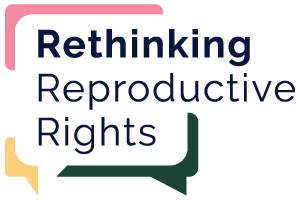GET EDUCATED
Overview
Quis sit duis nulla at etiam scelerisque dignissim amet sit nec et in ultrices interdum viverra felis, consectetur a libero, habitant mi nunc leo.
Mattis tristique tincidunt scelerisque neque felis non sed sed dignissim sit ornare fermentum velit amet mauris eget dui scelerisque augue cum tellus aliquet donec leo, euismod id mattis eu, tortor sit eget commodo egestas tincidunt tortor justo, porta pulvinar at.
Reproductive health and racial justice
You may think of reproductive rights and racial justice as separate issues, but the two causes have always been related.
In the medical system and in their everyday lives, Black and brown women regularly experience both racism and misogyny. The results can be deadly. In Michigan, infant mortality rates are nearly 3 times higher for Black babies than white babies. Black mothers are also significantly more likely than white mothers to die in childbirth. Racism is also closely tied to poverty and income inequality. The gender pay gap is especially drastic for Black, Indigenous and Latina women. The combination of racism and misogyny puts barriers between birthing people of color and their ability to have full control over their bodies and health.
Another important part of reproductive freedom is ensuring that everyone is able to feel safe and empowered in their communities. We cannot get there without combating racism and white supremacy. When you advocate for abortion rights and reproductive health, remember that racial justice is a crucial part of that.
Keeping our movement gender inclusive
For many, talking about abortion and reproductive rights as a “women’s issue” feels like second nature. However, using this kind of gendered language excludes people—even if you don’t mean it to.
Here’s the deal: women does not mean the same thing as people who can become pregnant, people who menstruate, or people who need reproductive health care. When you say these issues only affect women, you exclude nonbinary people and trans men who are also affected. Defining women this way can also harm trans women, and some cis women who do not menstruate or cannot become pregnant.
Instead of using gendered language, like “women should be able to make their own decisions about their reproductive health,” aim for:
- Gender-neutral language, like “everyone should be able to make their own decisions about their reproductive health.”
- Gender-inclusive language, like “women, trans men, and nonbinary people should be able to make their own decisions about their reproductive health.”
This is especially important because many LGBTQ+ people experience violence and discrimination in their daily lives. This discrimination also affects many individuals’ ability to get the care they need.
We can’t win reproductive freedom for all without fighting homophobia and transphobia. We must ensure our efforts include all affected people, not just cisgender women.
Prioritizing low-income communities
We believe everyone should have the right to safe, legal abortion and any other needed reproductive health care. But guaranteeing that legal right isn’t enough if people still aren’t able to get the care they need.
For many low-income people, getting necessary health care is easier said than done. Thousands of people across Michigan are uninsured or have insurance that doesn’t meet their needs, which means seeking out reproductive care like birth control, STI testing, or abortion services may come with costs they can’t afford to pay. Getting to an appointment also requires transportation and time off work, which many people don’t have access to.
On top of that, not everyone is financially independent, and people who rely on a spouse or family member for insurance or financial support should still have the ability to make their own decisions about their reproductive health.
We cannot have real reproductive freedom without economic justice. Together, we can create a world where everyone, regardless of ZIP code or income level, can exercise their rights.
Fighting for disability justice
Discussions about reproductive rights often focus on nondisabled, cisgender women, although more than 1 in 4 Americans live with a disability. We need to make these conversations more inclusive.
Everyone should have equal access to reproductive health care. But people with disabilities face systemic barriers to getting care. These barriers include bias and discrimination from doctors. A lack of accessible transportation also makes getting to doctor’s offices harder. It is important for providers to be aware of these issues and actively combat ableism in their practices. Not doing so prevents certain people from accessing the care they need, which is ableism/ableist.
Another key part of achieving reproductive freedom is making sure marginalized people are safe and empowered in their day to day lives. But people with disabilities are more than 3 times as likely to experience serious violent crimes as nondisabled people. Violence against people with disabilities is also less likely to be reported. We must address this systemic problem.
People with disabilities deserve the freedom to make their own reproductive health decisions. That means ending systemic violence against people with disabilities. It means making all medical offices accessible and inclusive. Most importantly, it means listening to people with disabilities and challenging ableism in our communities.
A movement built around nondisabled people just isn’t enough. We have to do better. Efforts to gain reproductive freedom must include the needs of people with disabilities.
Want to learn more about Michigan’s disability community and how you can support disability justice? Check out Detroit Disability Power and the Michigan Disability Rights Coalition.

